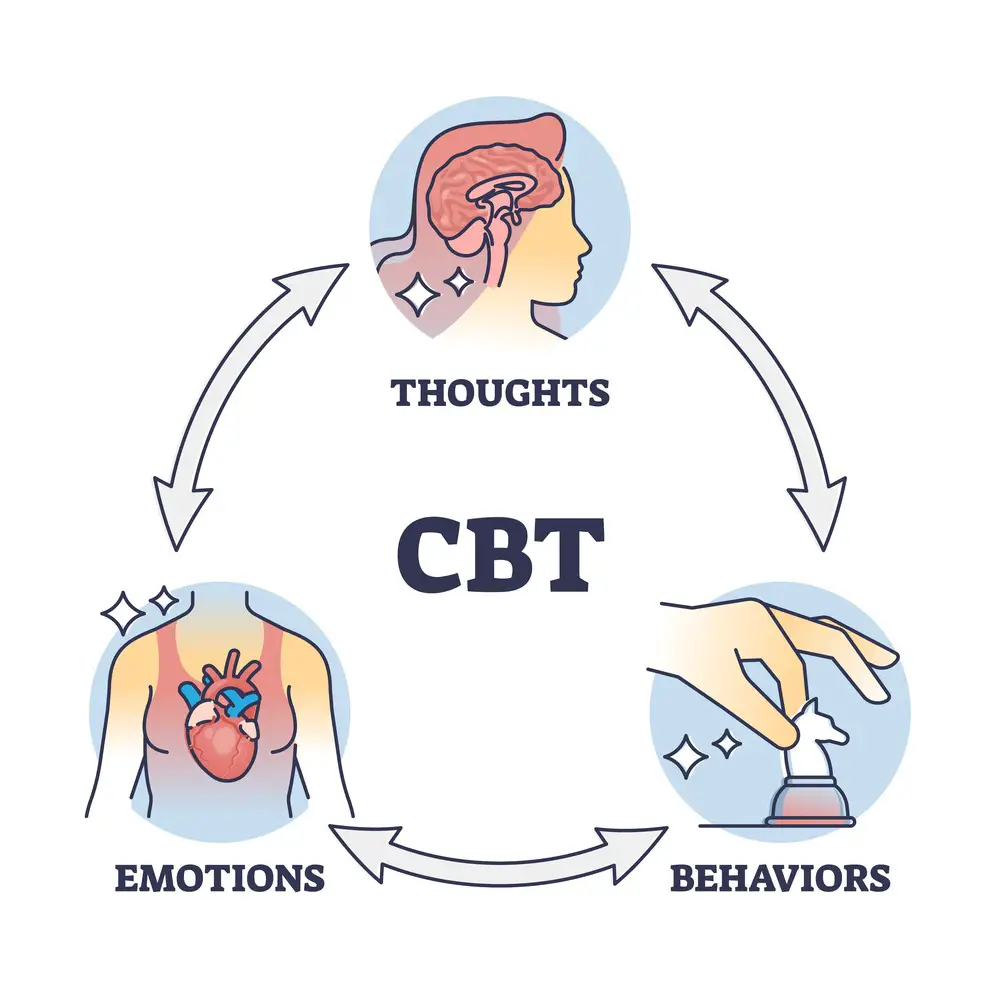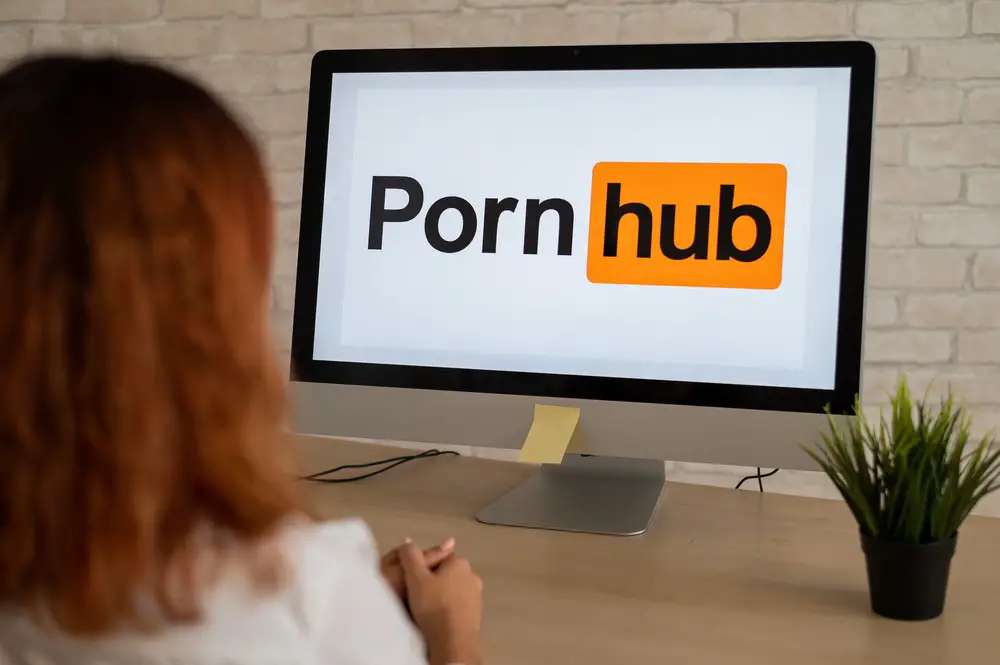Porn addiction, an escalating issue in today’s technology-driven society, has left many individuals seeking guidance and support through counseling and therapy. From its negative impact on personal relationships to the debilitation of one’s mental and emotional well-being, porn addiction has become a significant challenge that requires the understanding and expertise of professionals who can help individuals navigate recovery.
Counseling for porn addiction often follows a unique approach, as it addresses the condition’s psychological and behavioral aspects. Various treatment methods address the addiction and its related issues, tailoring each experience to the individual’s needs and goals. Through this process, individuals can gradually regain control of their lives and restore their well-being.
Key Takeaways
- Porn addiction counseling addresses the psychological and behavioral aspects of the condition
- Treatment methods are tailored to individual needs and goals
- Counseling aims to help individuals regain control of their lives and restore well-being
Understanding Porn Addiction
Porn addiction is a form of behavioral addiction characterized by compulsive and excessive consumption of internet pornography. While it is not officially recognized as a mental disorder, it can manifest similarly to other forms of addiction, presenting negative consequences for an individual’s personal, social, and professional life.
The nature of porn addiction involves a cycle of excessive porn use, wherein the individual seeks out internet porn to experience temporary relief from negative emotions, only to find that the relief is short-lived and often leads to feelings of guilt, shame, and further distress. This cycle can contribute to the development of compulsive behaviors and cause significant disruptions in a person’s relationships and daily routines.
Understanding the intricacies of porn addiction begins with an awareness of the potential triggers, including stress, boredom, loneliness, or existing mental health issues. It is also important to consider how modern technology may contribute to its prevalence, as the easy and constant access to internet porn has made it increasingly difficult for individuals to resist its lure.
In addressing porn addiction, it is essential to recognize that the problem goes beyond the mere act of watching pornography. It encompasses a range of related behaviors and thought patterns, including engaging in secretive activities, lying about one’s porn consumption, or isolating oneself from friends and loved ones. These factors can contribute to the deepening of the addiction and negatively impact a person’s overall well-being.
To combat this addiction, counseling, and therapeutic interventions can provide invaluable aid. Treatment plans often involve cognitive-behavioral therapy, which helps the individual develop healthier coping mechanisms to manage their addiction-related thoughts and urges. Additionally, support groups and educational resources can offer further guidance and reinforcement in an individual’s journey toward recovery from porn addiction.
Diagnosis and Related Disorders
Diagnosing porn addiction involves analyzing an individual’s behavior patterns and emotions associated with excessive pornography use. It is important to recognize that porn addiction is not yet officially classified as an addiction in the DSM-5. However, the related disorder, compulsive sexual behavior disorder, is included in the ICD-11 classification system.
Individuals struggling with porn addiction may display depression, anxiety, or other mental health issues interconnected with compulsive behaviors. In some cases, these related conditions can trigger or exacerbate the addiction, creating a cyclic pattern that requires a comprehensive treatment approach.
It is also common for porn addiction to be linked with other addictive behaviors, such as sex or gambling addiction. While these may be separate disorders, the underlying issues can be similar and may require simultaneous treatment for individuals to achieve lasting improvements in their mental health.
When assessing an individual for porn addiction, therapists or counselors focus on a person’s frequency of pornography use, the impact on their daily life and relationships, and signs of emotional distress or withdrawal when unable to access pornography. They may also look for a history of trauma or factors that contribute to the development of compulsive behaviors.
While there is no standardized diagnostic criteria for porn addiction, some elements that can indicate a problem include:
- Preoccupation with pornography to the detriment of other activities, relationships, or personal care.
- Failure to control or reduce the frequency of pornography use, despite negative consequences.
- Escalation in the intensity or type of pornography consumed to achieve the same level of satisfaction.
- Experiencing distress, anxiety, or irritability when access to pornography is restricted or denied.
In conclusion, diagnosing porn addiction and related disorders is a complex process that considers multiple factors, including the individual’s mental health history, behavioral patterns, and the impact of their addiction on their daily lives. Recognizing these connections is essential for developing effective treatment plans and promoting lasting recovery.

Treatment Approaches for Porn Addiction
Several treatment approaches are effective in addressing pornography addiction. Among these are counseling, psychotherapy, and support groups that aim to help individuals recover and maintain a healthy relationship with their sexuality.
One popular approach is cognitive-behavioral therapy (CBT). This therapy focuses on changing the thought patterns and behaviors associated with porn addiction. Through CBT, individuals can identify triggers, develop coping mechanisms, and learn alternative ways to manage stress and negative emotions.
Another treatment option is acceptance and commitment therapy (ACT). This approach encourages individuals to recognize their urges and thoughts related to porn addiction without judgment. Through mindful awareness and commitment to values-driven actions, individuals can pursue a fulfilling life despite addictive behaviors.
Support groups, such as 12-step programs and online forums, also play a significant role in recovery. By sharing experiences and learning from others who have faced similar challenges, individuals can gain valuable insights and develop a strong support network.
In some cases, a more comprehensive approach may be necessary, combining multiple treatment modalities to address various aspects of the addiction. This might involve group therapy, individual counseling, and even medication-assisted treatment if deemed appropriate by a healthcare professional.
It is essential to note that recovery from porn addiction is a process that requires persistence, dedication, and a willingness to change. Successful treatment often depends on the individual’s commitment to their recovery journey, and finding the right combination of treatment approaches can make all the difference.

Impact on Relationships and Well-Being
Pornography addiction can significantly impact an individual’s relationships and overall well-being. When a person becomes overly reliant on pornography as a coping mechanism, it can lead to feelings of guilt and shame. These emotions can create negative consequences in their personal life and their relationships with their loved ones.
In many cases, pornography addiction can lead to an emotional disconnection from one’s partner, as the addict may prioritize porn over real-life intimacy. This communication breakdown can result in a strained relationship, with partners feeling ignored, rejected, or unloved. Acknowledging that porn addiction doesn’t just affect the individual; it impacts everyone involved in their life is crucial.
Therapy is an essential tool in addressing the multifaceted issues surrounding porn addiction. Working with a trained professional, individuals can develop healthier coping mechanisms to replace their reliance on pornography. Therapy can also support and guide loved ones struggling to understand and cope with the addiction.
Participating in pornography addiction counseling can help repair damaged relationships and improve overall emotional well-being. Individuals can regain control over their lives, foster healthy communication, and rebuild trust with their loved ones. In addition, by addressing the underlying issues contributing to the addiction, individuals can prevent future negative consequences and move forward with greater self-awareness and emotional resilience.
Support and Professional Help
Porn addiction is a mental health issue that can greatly impact an individual’s life. Seeking support and professional help from therapists or counselors is crucial in overcoming this addiction.
Support groups play a significant role in providing a safe space for individuals to share their experiences, learn from others, and build a sense of accountability. These groups often include people who have been through similar challenges and can offer empathy, understanding, and practical advice.
Mental health professionals, such as therapists and counselors, specialize in addressing addictive behaviors. They can help individuals understand the underlying causes of their addiction and develop coping mechanisms to break the cycle. Therapists may also help individuals explore the emotional and psychological factors contributing to their addiction, providing a comprehensive approach to recovery.
It is important to remember that porn addiction counseling should be tailored to the individual’s needs and goals. A licensed mental health professional will be able to develop a personalized treatment plan to ensure optimal outcomes. This may involve a combination of individual therapy, group counseling, and, in some cases, prescribed medications to address any underlying mental health issues.
In conclusion, support from therapists, counselors, and support groups is essential in tackling porn addiction and establishing a healthier, more balanced lifestyle. Working alongside experienced mental health professionals, individuals with porn addiction can develop effective strategies for lasting change and recovery.
Resources and Organizations
The American Psychiatric Association (APA) is a key resource in mental health. It is known for publishing the Diagnostic and Statistical Manual of Mental Disorders (DSM), a standard reference for clinical practice. As porn addiction is not yet officially recognized as a disorder in the DSM, it is essential for professionals seeking more information to refer to the APA for research and updates on this matter.
The American Association of Sexuality Educators, Counselors, and Therapists (AASECT) is another valuable organization for individuals seeking help with porn addiction counseling. This organization offers resources and training programs for therapists and counselors, ensuring professionals have the necessary knowledge and skills to address this issue.
In the United States, both psychologists and psychiatrists can be useful in providing support for those struggling with porn addiction. Psychologists, who are members of the American Psychological Association, can offer- therapy and counseling services that target the emotional and mental aspects of porn addiction. Psychiatrists, being medical doctors, may also provide medical evaluations and treatments, including medications, if necessary.
Families play a significant role in supporting loved ones grappling with porn addiction. They must communicate openly and provide a judgment-free environment for the affected person. Families should seek guidance and support from mental health professionals to help their loved ones navigate this challenging journey.
In conclusion, several resources and organizations are available to address porn addiction counseling effectively. The collaboration of these entities and family support can make a huge difference in the recovery process for individuals struggling with porn addiction.
Recognizing and Addressing Triggers
Porn addiction shares many similarities with substance addiction, including withdrawal symptoms and compulsive behavior. To effectively manage and overcome such addiction, it is crucial to recognize and address the triggers that lead to compulsive pornography use.
Triggers can vary significantly from one individual to another. Common triggers include stress, loneliness, boredom, or exposure to sexually suggestive material. Recognizing these triggers can help individuals more effectively prevent or minimize their exposure to them. This can be done through self-reflection or with mental health professionals specializing in addiction counseling.
Addressing triggers is the next step in managing porn addiction. It is essential to develop healthy coping strategies to replace the use of pornography as a response to triggering situations. For example, individuals could engage in exercise, meditation, or hobbies when experiencing stress instead of resorting to pornography use.
Interventions can be necessary when the addiction becomes a compulsion that significantly impacts an individual’s life. Such interventions might involve support from friends and family or participation in group therapy sessions. In some cases, mental health professionals might also recommend medication to help manage withdrawal symptoms and urge control.
Finally, understanding the role of brain activity in porn addiction is vital. Just like substance abuse, pornography use can alter the brain’s reward system, leading to a vicious cycle of compulsion and withdrawal. Therefore, ongoing support and treatment from mental health professionals are required to help individuals regain control over their lives and maintain long-term recovery from porn addiction.
Dealing with Addiction-Related Issues
Dealing with porn addiction can be complex, as it involves addressing various mental health issues and finding the right support system. Addicts need professional help, such as through porn addiction counseling, to ensure they receive the appropriate treatment and guidance.
Research has shown that porn addiction is a mental health disorder, and it can significantly impact an individual’s well-being and quality of life. That being said, there is hope for those struggling with this addiction. Individuals can recover and lead healthier lives with proper support and appropriate interventions.
Medication may be prescribed to help manage symptoms of anxiety, depression, or other mental health issues contributing to the addiction. Working closely with a healthcare professional to determine the most effective medications and dosages is essential.
In addition to medication, addicts can benefit from engaging in various forms of therapy, including cognitive-behavioral therapy (CBT) and group counseling. These therapeutic approaches can help individuals identify and address underlying issues driving their addiction, develop healthier coping strategies, and improve emotional regulation.
Furthermore, some researchers are exploring the potential role of artificial intelligence (AI) in treating porn addiction. AI-powered intervention tools, such as chatbots, can offer instant support and personalized guidance to addicts, helping them manage cravings and maintain progress in their recovery journey.
Lastly, it is essential for individuals struggling with porn addiction to prioritize self-care and overall well-being. This may include engaging in activities promoting positive mental health, such as exercise, meditation, or a balanced diet. By fostering a healthy lifestyle, addicts can strengthen their recovery process and improve their overall quality of life.
In summary, dealing with addiction-related issues requires a comprehensive approach involving professional help, medication, therapy, cutting-edge technologies such as AI, and self-care practices. By addressing the various aspects of mental health and seeking the necessary support, individuals can overcome porn addiction and rebuild their lives.
FAQs
What is porn addiction counseling?
Porn addiction counseling is a professional service therapist and counselors provide to help individuals who struggle with compulsive pornography consumption. They assist in understanding the addiction’s causes, patterns, and impacts and guide individuals toward healthy coping mechanisms and recovery.
How does porn addiction affect individuals?
Porn addiction can have various negative effects on an individual’s life, including:
- Damaged relationships due to secrecy and trust issues.
- Decreased sexual satisfaction and intimacy in partnerships.
- Mental health issues such as anxiety, depression, or guilt.
- Decreased productivity and focus, potentially impacting work or school performance.
- Escalation of addiction to more extreme or illegal material.
What are the treatment options for porn addiction?
Treatment options for porn addiction may include:
- Individual therapy sessions with a licensed counselor or therapist.
- Group therapy sessions with other individuals recovering from porn addiction.
- Self-help literature and online resources to further knowledge on porn addiction.
- 12-step programs, such as Sex and Love Addicts Anonymous (SLAA), or Sex Addicts Anonymous (SAA).
How can I find a qualified porn addiction counselor?
To find a qualified porn addiction counselor, individuals can consult their primary care provider for referrals, search online for local therapists specializing in addiction, or consult credible online directories. It is essential to verify the credentials and experience of the counselor to ensure they are the right fit.
Is it possible to recover fully from porn addiction?
Yes, with persistence, dedication, and support from professionals and loved ones, individuals can overcome porn addiction and regain control over their lives. Recovery is an ongoing process, and relapses may occur, but it is crucial to maintain a commitment to the recovery journey and utilize the tools learned in counseling.
- The Burnout Epidemic: Why We’re All Feeling Overwhelmed and How to Cope - February 9, 2024
- How to Live a Peaceful Life - February 9, 2024
- Useful Information You Should Know About Health Screenings - February 8, 2024
This site contains affiliate links to products. We will receive a commission for purchases made through these links.





